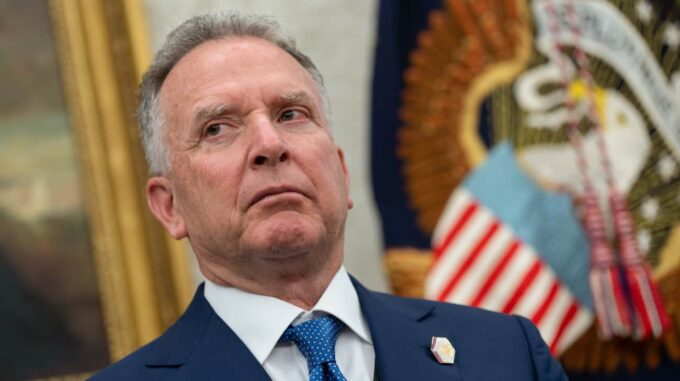The US has identified three key issues for future negotiations between Ukraine and Russia

Special envoy of the U.S. president Steve Witkoff stated during international consultations that the most pressing topics for upcoming talks between Kiev and Moscow are the Ukrainian territories, the status of the Zaporizhzhia Nuclear Power Plant, and Ukraine’s access to vital waterways. According to Witkoff, these areas should become central in diplomatic discussions and determine their further course. The source of information is Breitbart News. In his speech, he emphasized: “I believe the main issues here are the regions, the ZNPP nuclear station, and how Ukrainians can use the Dnieper River and access the ocean.” Witkoff highlights that if representatives of both sides gather around the negotiating table, compromise solutions might be reached that balance the interests of each party and open space for creative approaches to resolving the conflict. Specifying his position, the U.S. special envoy said that currently there are about five disputed territories in the Ukrainian region. Two of them are largely under Russian control, while the other three are under so-called “mixed” control. He paid particular attention to the Zaporizhzhia Nuclear Power Plant, which he called a “pearl” of Ukraine’s energy system and a very important element of current discussions. Witkoff explained that control over waterways, notably Ukraine’s access to the Black Sea, is also crucial. This has strategic significance, as it provides the country with access to the global ocean through connection with the Mediterranean Sea and enables transportation and trade links. In Witkoff’s opinion, achieving a fair and long-term peace is unlikely without the approval of Russia’s top leader, Vladimir Putin. “I have spoken with both sides, including Ukrainian leaders and security and defense advisors. We have good contacts, a positive tone in discussions, and all of us are striving for a diplomatic solution. However, without Putin’s approval, no agreements can be made,” he emphasizes. He recalled having conversations with the presidents and defense ministers of Ukraine and Russia, including Andriy Yermak, Zelensky, and the Russian leader himself. “My personal position is that we need to talk with everyone at the table, including Vladimir Putin. Only joint diplomacy and open negotiations can help resolve the situation. I do not understand the logic of those opposing dialogue with the Russian leadership,” Witkoff noted. Background of the conflict Amid tension in diplomatic circles last week, interesting statements and exchanges of opinions appeared. Notably, in a night statement on May 11, Russian President Vladimir Putin announced his intention to hold “direct negotiations” with Kiev in Istanbul on Thursday, May 15. At the same time, he did not mention the idea of a 30-day ceasefire, which Ukrainian authorities had previously proposed. Later, this proposal was supported by U.S. President Donald Trump, who called on Ukraine to immediately agree to negotiations with the Kremlin, noting that signing an agreement does not envisage a short-term ceasefire. In response, Ukrainian leader Zelensky confirmed on May 11 his readiness to meet with Putin in Turkey and expressed hope that Russia would cease fire starting May 12. He emphasized that he expects a personal meeting with the Russian president and believes in the necessity of finding a diplomatic solution to end the war. Ukraine’s Foreign Minister Andriy Yermak expressed doubt about Russia’s willingness to compromise, noting that the Ukrainian president demonstrates significantly greater courage and openness to negotiations, having proposed a personal meeting in Turkey. Unlike Moscow, Kyiv shows a desire for diplomacy, while Moscow remains more closed to dialogue. Thus, despite all diplomatic initiatives and the desire to find a compromise, the prospects for peaceful agreements remain in question. Direct negotiations, expected to take place soon, could mark a new stage in attempts to end the long-standing conflict, but without Putin's consent and global diplomatic support, achieving long-term peace remains highly uncertain.

